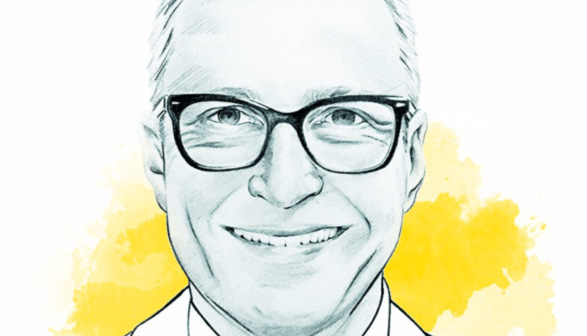MailChimp’s purpose-driven business model has allowed the company both to empower small businesses and become a sector leader in digital marketing.
If you run a small business, there’s no doubt that you’ve heard of MailChimp. Most likely, you have also used it to grow your digital marketing and communications. The story of MailChimp’s success isn’t just relevant to small business owners and marketing professionals; it’s of wider interest because it’s a great case study in how embracing the freemium model can boost firms’ fortunes. Since MailChimp offered its basic services for free, its commercial performance has spiked. Once customers get through the door, and like the basic product, they pay for an enhanced service.
I was lucky enough to bump into Tom Klein, chief marketing officer at MailChimp, at a recent Wharton School reunion. Klein is a Great Mind of the tech age – he has enjoyed a marketing career that focused relentlessly on digital, long before the days of mass computerization. “I met some students recently and realized that I was doing digital marketing before they were born,” Klein told me.
Klein’s wealth of experience is paying off. MailChimp, once a niche digital business, posted revenues of around $400m in 2016 without the aid of a sales team. Behind the remarkable success of the model is one of the most interesting company purposes in the digital sector: improving the lot of business’s little guys. “Purpose is very important to us,” Klein revealed. “Our purpose is to democratize technology to empower the underdog. Essentially this means that we are trying to take the greatest technology and put it in the hands of the smallest businesses.”
Klein describes the experience as being much more than motivating, citing a recent project where MailChimp was working with small businesses in Alpharetta, a community outside Atlanta, Georgia. “As a business founder myself, I have a lot of empathy for these customers,” Klein told me. “We are in emotional territory when we talk purpose. It attracts people. But we can have this emotional connection and still be intensely competitive.” Yet the benefits of such a compelling purpose go far beyond the emotional and inspirational. MailChimp’s pro-underdog purpose is central to shaping its strategy. “If we find something that fits with our purpose, we must find a way to incorporate it into our strategy,” Klein revealed. “Without purpose to perform that role, your strategy can become a bit static.”
MailChimp exploited that very dynamic to reshape the focus of the business following its game-changing move to freemium.
“We could have said, ‘We offer a free email and marketing automation solution to small business owners, how can we get them to pay?’ That’s a reasonable business question. But we turned it around to put us more in the corner of our customer. Instead, we asked, ‘How do we get our customers happy or even delighted to pay because they’re growing so fast?’ The freemium offering, in our minds, is about getting people to learn, not just a restriction on volume, so that they can get ready for more success and growth. We only grow when our customers grow. We’re in the same boat as they are. If they don’t learn marketing automation, they won’t grow, so purpose aligns our interests.”
By giving a hand up to the little guys, former minnow MailChimp is helping the next generation of digital stars break through. It is the underdog that barked – thanks in no small part to the Great Mind of Tom Klein.
Michael Chavez is global managing director of Duke Corporate Education.




